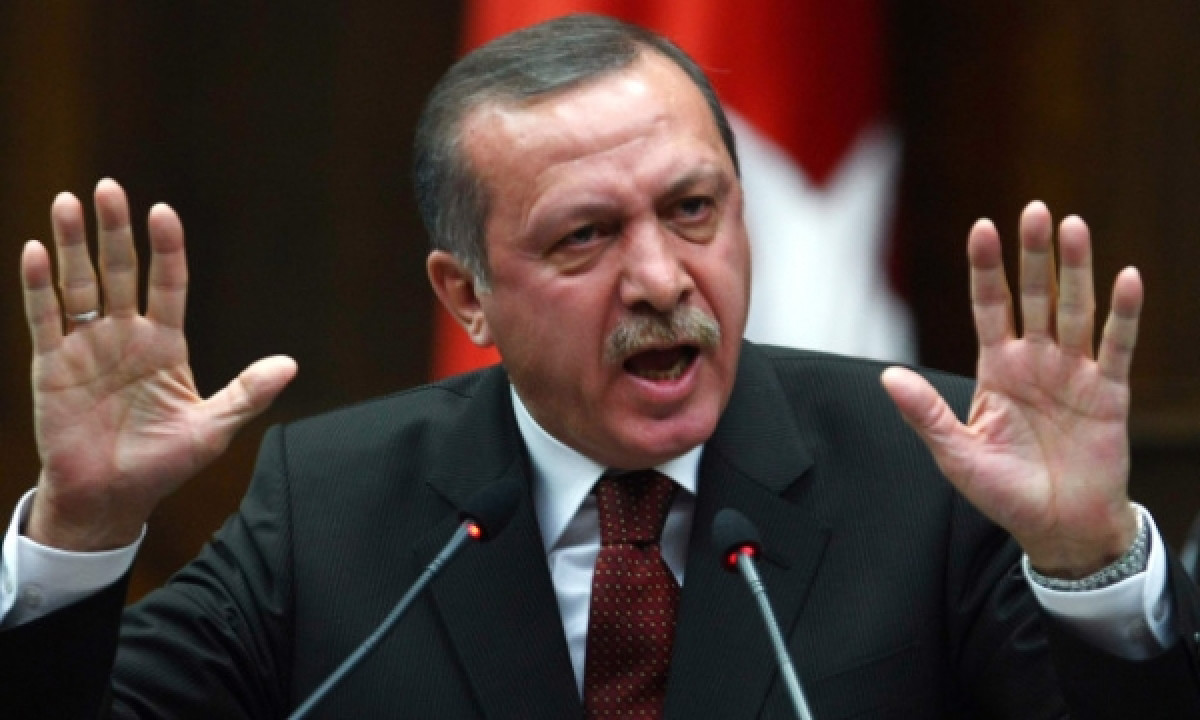 308
308
In recent days, President Erdoğan has expressed his categorical opposition to Sweden and Finland’s controversial quest to join the North Atlantic Treaty Organisation (NATO).
During the Cold War, the two Nordic nations consistently refused to join NATO or any other military alliance, maintaining complete neutrality, while the capitalist-communist conflict raged.
After Moscow’s decisive move to launch a special military campaign against Ukrainian fascist militias, Helsinki and Stockholm have unequivocally decided to join NATO, a momentous development that might have far-reaching ramifications and radically alter Europe’s military equilibrium.
However, Sweden and Finland would require the unanimous consent of all 30 NATO member states to join the alliance. Therefore, Turkey’s “YES” vote is extremely critical at this historic moment, creating a unique opportunity for Turks to settle their political, economic, and other long-standing disagreements with their European allies, particularly with the two militarily vulnerable Scandinavian countries.
In the wake of Erdoğan’s implacable opposition to Finland and Sweden’s dramatic bid to join NATO, widespread conjectures emerged as to what could be the ulterior motive for Erdoğan’s blocking posture vis-à-vis Finland and Sweden’s restless ambitions to join the pro-US coalition.
According to analysts, Turkey’s rationale for opposing the NATO membership of the once-neutral northern European nations is self-evident.
In exchange for his endorsement of Finland and Sweden’s NATO membership, Erdoğan would press NATO members to lift the arms embargo against Turkey, substantially tighten the restrictions against exiled Turkish opposition parties based in Sweden and Finland, and not interfere in his iron-fist crackdown against his ruling party’s (AKP) domestic foes.
Ankara has long been convinced that Finland and Sweden have harboured dissident parties that Turkish officials deem terrorist groups for many years.
These exiled opposition parties include the Kurdistan Workers’ Party (PKK) and the pro-Fethullah Gülen elements, accused of orchestrating the failed 2016 coup attempt. Erdoğan demands their extradition to Turkey or a permanent ban on their anti-Turkey campaigns.
The supporters of Mr Gülen [often known as FETO, a disparaging term for followers of the controversial religious scholar based in the United States] have been labelled as a terrorist organisation. The government had purportedly controlled a vast network of infiltrators operating across the country’s educational and judicial systems.
To this end, Turkish Foreign Minister Mevlüt Çavuşoğlu laid out a lengthy list of conditions for Finland and Sweden’s bid to join NATO, including the cessation of assistance to “terrorist organisations” and the lifting of the embargo on military exports to Turkey.
Sweden and Finland, along with other EU nations, enforced arms exports to Turkey in 2019 in response to the Turkish illegitimate incursion into northern Syria, designed to repel the PKK’s Syrian branch (YPG) militants from Turkey-Syria border crossings. Accordingly, it makes complete sense for Ankara to deny the two Scandinavian countries’ NATO membership efforts. Since the 1980s, the outlawed PKK insurgents, led by the now-imprisoned Abdullah Öcalan, have engaged in an armed struggle against the Turkish government, seeking to gain an independent state for millions of Kurdish minorities in Turkey.
The Turkish bargaining deals come amid the fact that Turkey’s F-16 fleet is in deplorable condition and that Ankara urgently needs to overhaul its F-16s, upgrade them with cutting-edge technology, and purchase new weaponry systems.
Another thorny topic is Turkey’s explicit intentions to join the advanced F-35 aircraft production program. After Turkey purchased Russia’s S-400 missile defence system, the US government prohibited the supply of F-35 jets to Turkey, imposing unprecedented sanctions on Ankara, which have had catastrophic repercussions for Turkey’s tumbling economy.
Furthermore, according to Turkish authorities, Sweden’s restrictions on the Turkish defence industry, particularly following the 2010 Turkish operation in northern Syria dubbed “Peace Spring”, should be immediately lifted.
Trying to give diplomacy another chance, US Secretary of State Antony Blinken said that Ankara’s objection to Sweden and Finland joining NATO will be addressed shortly, implying that Washington is intervening with Turkey to modify Erdoğan’s recalcitrant stance.
Turkey is fully aware that Finland and Sweden’s admission to NATO would enhance NATO’s military capabilities and make the alliance more robust against the Russian menace.
Interestingly, despite having a small population and a modest military budget, Finland has a sophisticated air force.
In the winter of 1939, the outnumbered Finnish army crushed the formidable Soviet army and later collaborated with Nazi Germany during World War II.
Sweden also boasts a highly developed industrial-technological military infrastructure and a strong army. Thus, these advantages boost NATO’s position against the reawakened Russian bear.
Finally, the West, especially the Americans, will undoubtedly endeavour to persuade Erdoğan to abandon his negative stance. In these emerging dynamics, Ankara, on the other hand, is vying for further concessions from its NATO partners.
Comment
Post a comment for this article